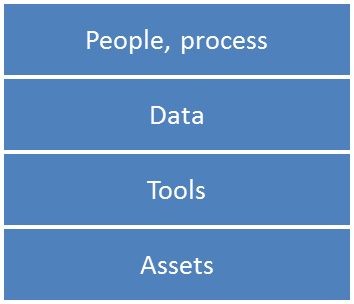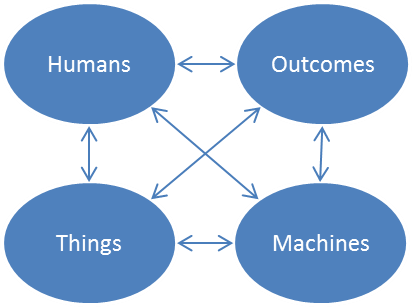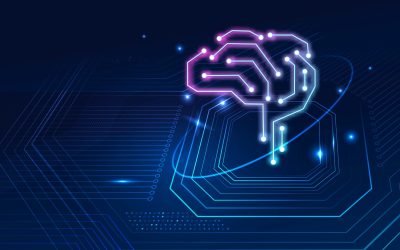Innovate or die. That is the mantra of successful organizations that compete in a fast-transforming digital world. Those who harness social media, mobile, analytics, cloud computing, and Internet of things (SMACT) to digitize the business win in the marketplace. Those who don’t, lose. It is a wild, wild digital world out there.
Business architects embedded in successful organizations need to innovate as well or lose relevance. The world where business architecture matters has changed. Old paradigms give way to the new. One area that needs rethinking is how business architects define a business capability.
How often do we hear or speak of a business capability as an encapsulation people, process, and tools?* How we arrive at this description is understandable. It follows the paradigm that traditional enterprise architects use to frame their thinking. Enterprise architecture describe frameworks as layers that sit on top of each other to illustrate that each layer builds upon (and depends) on the layer or layers below or above it (see figure 1). Based on this framework, what a business (or non-profit organization) does can best be described as an assembly of people who perform processes enabled by tools.

Figure 1. Business capability as layers
The business architecture layer drives the underlying layers of information, application, and technology architectures. For true alignment, the underlying layers feed back business results to inform the business architecture. This relationship works in a linear and predictable manner where the handoffs are clear. One part of the organization is responsible for each layer and most probably uses specific tools to perform the prescribed processes.
In today’s digital world, this concept is becoming passé. Is it not time to reframe our thinking to reflect the realities of our time?
Our world today is non-linear, unpredictable, and the lines separating silos disappear. The most successful organizations operate not in isolation but in a web of relationships. These organizations operate in a modular and agile way to manage complexity.
The new paradigm challenges this limited view of the enterprise. A business capability is no longer just an assembly of people but of humans and machines. A business capability is no longer just a set of processes; it is about business outcomes. A business capability is no longer just about tools. It is about the Internet of things. A business capability, therefore is still an encapsulation but of humans, machines, things. Each work together in a web of relationships and in harmony to produce business outcomes (see Figure 2).

Figure 2. Business capability redefined by SMACT
Business architects almost always encounter SMACT in every engagement. For example, in a recent meeting about rationalizing applications, a client brings up the topic of cloud computing and social media applications as another set of applications that the company needs to govern. In another meeting about optimizing investments in technology-enabled projects, a CFO asks how the company invests in analytics and business intelligence to improve sales and operations.
As the world changes where business architects operate, so must business architects adapt. The old notion of a business capability as an encapsulation of people, process, and tools no longer captures the essence of a digital world. A business capability is by necessity more dynamic and complex. It involves humans, machines, and things working together to produce an outcome. It is time to let go of what is passé and time to embrace our brave new digital world.
Footnote: * Ulrich Homann writes in an article titled “A Business-Oriented Foundation for Service Orientation” a formal definition where “a business capability abstracts and encapsulates the people, process / procedures, technology, and information into the essential building blocks needed to facilitate performance improvement and redesign analysis.”

















